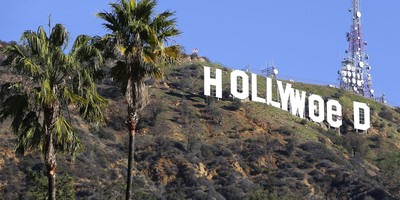On October 1, 2008, a 25-year ban on drilling in federal waters (the Outer Continental Shelf) will expire, not with a bang but a whimper, as congressional opponents to drilling for oil on American soil admit that Americans are fed up with bans on doing the one thing likely to produce oil and gas—drilling for it. That is not to say, however, that environmental groups now must stand on the sidelines as the Nation searches for energy since they possess a host of tools to frustrate that effort, including the National Environmental Policy Act (NEPA), which enshrined the phrase “paralysis by analysis.”
Take, for example, the plan, in 2003, by Savoy Energy of Traverse City, Michigan, to drill on three state and three federal leases in Crawford County, Michigan, 136 miles north of Lansing. Savoy proposed to use lands within the Huron-Manistee National Forest—managed by the U.S. Forest Service—to drill directionally beneath State of Michigan lands known as the “Mason Tract,” a 4,679-acre parcel, which includes 11 miles of the Au Sable River, donated in part by a former auto executive and fly-fisherman on condition that it remain undeveloped.
Savoy’s proposal was approved by the Michigan Department of Environmental Quality, whereupon the Forest Service undertook to comply with NEPA’s requirements for a study of “major federal action” that “significantly affects the quality of the human environment.” In 2004, the Forest Service issued an Environmental Assessment (EA) and then, in January 2005, issued a Decision Notice and a Finding of No Significant Impact (FONSI) that approved Savoy’s proposal but with additional mitigation measures.
In June 2005, Anglers of the Au Sable, Tim Mason (a grandson of the Mason Tract donor), and the Mackinac Chapter of the Sierra Club, sued alleging that the Forest Service had violated NEPA and, in December 2005, sought an injunction on drilling, which was granted five days later. In June 2006, the magistrate judge who had been assigned the case ruled that the Forest Service had violated NEPA. In July 2008, a Michigan federal district court judge upheld that ruling, holding that the Forest Service’s finding that Savoy’s exploratory well would have “no significant environmental impact” was arbitrary and capricious. Held the judge, the Forest Service had failed to study several issues, including the negative impact on tourism, at the local, county, and state levels, of the single well. In addition, the Forest Service wrongfully believed that federal law required it to recognize Savoy’s right to drill on its property. Finally, the Forest Service had deferred improperly to Savoy as to the location of the bottom hole.
Recommended
One legal observer wrote that the federal district court’s “decision seemed predetermined against the Forest Service,” that the judge had “set impossible standards,” and that he had improperly "substitute[d] his own judgment for that of the Forest Service." A career attorney with the U.S. Department of the Justice declared it to be “the worst NEPA ruling I have seen in 19 years of litigating these issues.”
Ironically, the week the judge issued his ruling condemning the Forest Service for failing to ascertain the adverse impact on the “recreational experience” of seeing an exploratory well for those visiting the Mason Tract, the price of gasoline—more likely to affect that recreational experience—hit $4.10. Celebrating their victory, leaders of the environmental groups said they wanted Savoy and the Forest Service to look elsewhere for oil and gas. "We've said from the beginning we didn't want to stop them from drilling. We want them to drill from a place that won't be harmful to the old-growth forest or the recreational experience."
One expects such nonsense from environmental groups; however, it is jarring to hear it from a federal judge. Nonetheless, that is the history of NEPA. No word yet on whether the federal government plans to fight back. If it is serious about finding oil and gas, it will!

























Join the conversation as a VIP Member